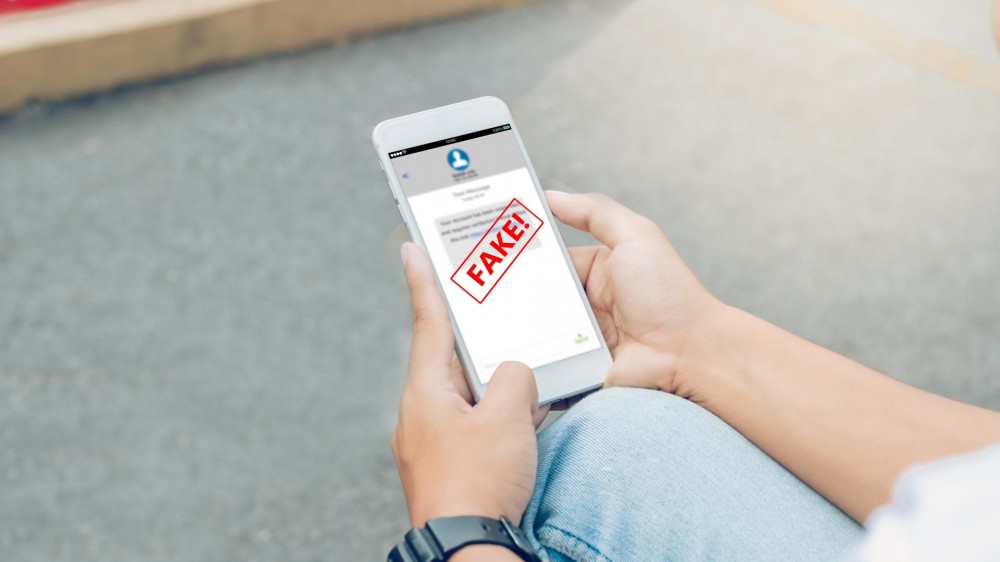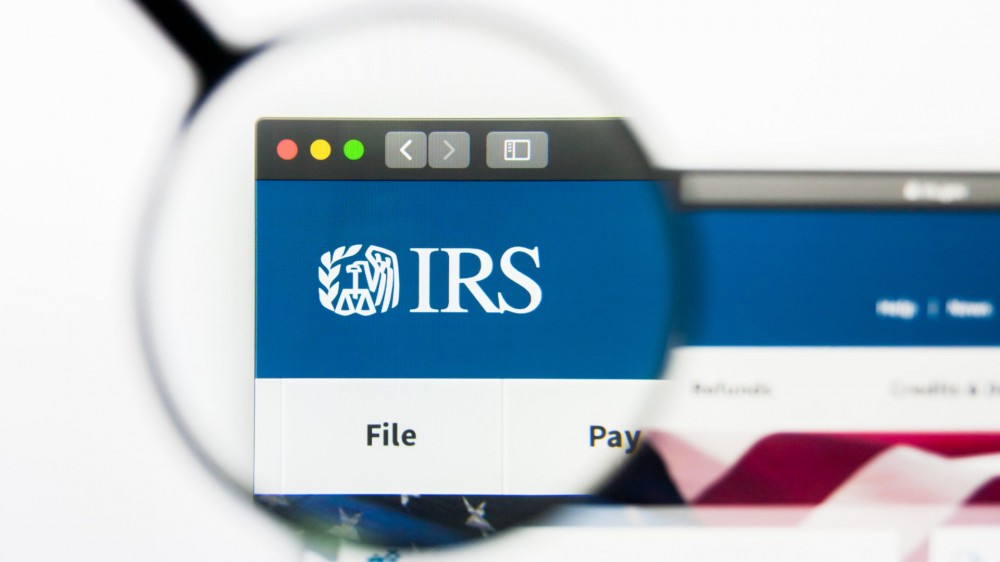
It’s time to round up your 1099, W2s, or other forms to see if you owe Uncle Sam or are getting a big fat refund. That also means tax scams will be everywhere. The IRS will never text you, and even though criminals will try sending texts, emails, and more, don’t fall for it.
Unfortunately, every year, thousands of people fall victim to awful scammers. And while it’s a year-round problem, we see a lot during the holidays, and then it peaks around tax season.
No one wants to deal with the Internal Revenue Service, but don’t let that fear get you into trouble with a scammer. Here are a few of the most common IRS tax scams, tips to help you spot one, and more details to help you stay safe.
The IRS Won’t Text You
How the IRS Will Contact You
Be Careful with Calls, Emails, and More
How to Report IRS Scams
The IRS Won’t Text You

One of the most common scams is an IRS text message. Text scams are an ongoing problem that comes in various forms. And while the IRS has an exhaustive list of scams and fraud to avoid, texts are a big one.
In late 2022, the IRS issued a warning to stay vigilant when it comes to text messages and never click on suspicious links. According to the Internal Revenue Service, “new scam texts ask taxpayers to click a link or call a telephone number where criminals will collect their personal or financial information. The IRS does not send emails or text messages asking for personal or financial information or account numbers.”
Any text message mentioning taxes and the IRS is a scam. These are known as smishing or phishing scams, where criminals send a text and try to get you to click a link or divulge important personal information.
If you get an IRS text message, do not click any links, call any phone numbers, and never share personal or financial information. I recommend instantly blocking the number (although that rarely helps these days) and deleting the text.
How the IRS Will Contact You

Again, the IRS will never text you, ever. If you’re wondering, “how will the IRS contact me?” we have you covered. According to the official IRS.gov website, almost all contact with taxpayers goes through the regular U.S. Postal Service mail delivery system. You’ll get a letter, not a text or call.
It’s worth noting that while most IRS contact is through the mail, there are some instances where they’ll call you, come to your home, or visit a business. These situations are rare and typically happen when you have a largely overdue tax bill, delinquent tax returns, unfiled returns, or delinquent employment payments.
Occasionally, the IRS will visit a business during an audit or investigation. However, it’s important to note that in almost every scenario, you’ll get a letter in the mail first.
Be Careful with Calls, Emails, and More

More people are hesitant when it comes to shady text messages, which is why scammers are starting to get more sophisticated. They’ll try phone calls and emails or even create a fake website that looks highly similar to the IRS government website to trick victims.
Now that you know how the IRS will contact you, pay attention to other methods. If you’re getting phone calls or emails, threatening or not, they’re likely a scam. This is especially true if you’ve yet to receive anything in the mail. The IRS will issue countless letters first before ever resorting to phone calls.
And while it sounds harsh, use some common sense. Many scammers will claim to work for the IRS and say you owe back taxes, misfiled, or have a balance and owe a penalty fee. While this happens, you’ll get notified by mail.
If you get a phone call from someone claiming to work for the IRS and wants you to pay in gift cards, that should be an obvious red flag. What is the government going to do with a gift card? Nothing, that’s a scam!
Stay away from IRS phone calls, emails, voicemails, reaching out on social media, or anyone asking for financial information over the phone. You should never give out your debit card, credit card, or banking details. The IRS won’t ask for it on the phone, either.
Even if you’re getting threatening calls or voicemails saying you’ll go to jail, lose your driver’s license, or lose your house. The IRS must follow the taxpayer bill of rights, allowing you to appeal any case. You’ll never randomly get a threatening phone call or text.
You’ll also want to be mindful of “tax charity” phone calls, where someone claims if you donate to a good cause, it’ll be a write-off. These do exist, but random calls about them are a red flag. Last but not least, if you’ve already fallen victim to a scam, you’ll likely be a target for “recovery scams” where someone claims they can help.
If you’ve been scammed, reach out to a physical business where you live, and don’t deal with a stranger over the phone.
How to Report IRS Scams

In the unfortunate event that you get scammed, or even if you didn’t fall for it, you should report all IRS scams to the proper channels. There are several ways to do this, depending on the situation.
For one, report all tax scams to the IRS and file a complaint with the FTC. You can forward emails or send suspicious phone numbers to an IRS email, which is [email protected]. And while most text and call scams spoof numbers, it’s still worth submitting them to the proper authorities. Then, submit information to the Treasury Inspector General for Tax Administration (TIGTA) on its website or by calling TIGTA at 1-800-366-4484.
In closing, we wanted to mention that we only touched on a few of the many different situations, scams, and fraud that takes place these days. Thankfully, the IRS puts together a “dirty dozen” report on tax scams each year, and you can learn more from those reports.
Use caution and common sense, never trust strangers, and stay safe out there.






